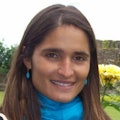The Ocean and Climate Systems Research Group investigates a variety of climate change processes and consequences within the ocean-climate system.
We use field research, palaeoclimate records, numerical modelling, and policy research to investigate climate change over a range of timescales. We are interested in interactions between different components of the Earth System, and the impacts of climate change on society.
Our expertise in numerical modelling, geochemistry, policy development, and risk analysis is used to address some of the major questions about the dynamics and impacts of our changing climate system.
Aims
We aim to understand a range of causes and consequences of change in the climate system, including:
- ice sheet stability
- sea level change and coastal governance
- mechanisms of abrupt climate change
- ocean acidification
- climate risk and resilience
- weather extremes
- water resources
- interactions between climate and social behaviour.
Research
Numerical modelling
We work on developing and utilizing a variety of numerical models at a range of scales, from modelling lakes on the surface of Antarctica’s ice shelves, to regional climate modelling, investigating climate extremes, and climate projection development. Our developments include a hydrological model for drylands in order to simulate the impact of climate change on regions prone to water scarcity, and dust emission modelling to understand the impact of mineral dust on the atmosphere and carbon cycle. Our work also influences larger Earth System Models so that the processes we are working on are accounted for in larger studies of global processes.
Geochemistry and palaeoclimate records
We generate geochemical records of past climate change to reconstruct past changes in ice sheet stability, ocean acidification and oxygenation, and climate sensitivity. We also use palaeoclimate records to understand the causes of abrupt climate change and ocean-climate interactions on a range of timescales.
Ocean and coastal governance
We develop model institutional and policy frameworks to deliver Integrated Coastal Management (ICM). We are actively involved in the development and day-to-day running of a number of international, national and more local coastal and estuary management projects, including EUROCOAST, CoastNET, Arfordir, and the local Severn Estuary Strategy.
Climate risk and resilience
In a warming climate, we expect to see changes to hazardous weather events, such as windstorms, heatwaves, fire weather, drought and flooding. Understanding how much, where and when such changes are likely to occur is critically important so that we can prepare for changes and become more resilient to climate change. Such understanding is developed by studying climate change information produced by sophisticated climate models, investigating behavioural characteristics and socio-economic factors of communities and individuals that can act to enhance or reduce their exposure to weather hazards.
Water resources
We are working on the translation of climate information into multilevel decision support for social adaptation, policy development and resilience to water scarcity in drylands of East Africa. We are also studying groundwater recharge processes in global drylands and their quantification and sensitivities to environmental change. We also investigate the intersection of water, ecosystems, society and technologies, focusing on three main themes:
- hydro-socio-ecological systems under change
- resilience and environmental hazard
- innovative data technologies for the environment and development.
Climate and society
Our research embodies the interaction between social-economic activities and natural systems. We are broadly interested in exploring how human behaviour affects the natural environment, and in examining how policy can lead to consumer behaviour change that improves sustainability. Projects include the effect of climate change and air pollution on human activities such as driving and tourism, as well as the effectiveness of environmental and energy policies at the micro-level.
Funding
Lear, C.H. and Pearson, P. N. Super Warm Early Eocene Temperatures. NERCNE/P019102/1. October 2017-September 2022, £722,067
Pearson, P. N., Barker, S. and Wade, B. S. Ocean carbon cycling since the Miocene: testing the metabolic hypothesis. NERC standard grant NE/N001621/1. January 2016-January 2019, £747,000
Cuthbert, M. O. Groundwater recharge in global drylands: processes, quantification & sensitivities to environmental change. NERC NE/P017819/1. August 2017-July 2022, £717,000
Pearson, P. N. Expedition 363 West Pacific Warm Pool: planktonic foraminifer biostratigraphy and the evolution of Pulleniatina. NERC IODP Moratorium proposal. Submitted September 2016; already accepted for expedition, £43,720, including 2 months full time FEC plus 1 hour per week FEC
Pearson, P. N. Tanzania Onshore Paleogene Integrated Coring (TOPIC). Approved ICDP grant, $1,000,000
Pearson, P. N. and Saraswati, P. K. Developing records of Paleogene greenhouse climate states from geological sections in India. Royal Society India - UK Scientific Seminar Scheme. 2014, £5,000
Pike, J. IODP Exp. 362-Carbonate accumulation events in the Eocene Indian Ocean. NERC/UK IODP Moratorium Award. NE/P021182/1. February 2017-July 2017, £24,930
Pearson, P. N., Hudson, W., Nicholas, C. J., Thomas, E. and Wade, B. S. Tanzania Onshore Paleogene Integrated Coring. International Continental Scientific Drilling Project Workshop. 2014, $65,000, £43,000
Pearson, P. N., Foster, G. L., Bown, P., Gibbs, S., Pälike, H. and Sexton, P. Abrupt Ocean Acidification Events. NERC / DERFA / DECC grant NE/H017518/1. January 2011– December 2014, £690,000
Pearson, P. N., and Lear, C. Descent into the Icehouse. NERC Standard grant NE/I005870/1. May 2011– November 2014, £378,000 to Cardiff
Bailey, T. R., and Lear, C. Raising public awareness of Ocean Acidification via a pop-up museum. NERC. 2016-2017, £16,400
Lear, C. Pliocene Palaeoclimate off SE Africa. NERC UK IODP Moratorium Grant. 2016-2017, £70,694
Lear, C. A revised record of ice volume change through the Neogene and its impact on carbonate reservoirs offshore Kenya. NERC and BG Group. 2014-2018, £117,504
Lear, C. Paleoceanographic records from the NW Pacific. NERC UK IODP Moratorium Grant. 2014-2015, £44,397
Barker, S. Glacial terminations of the Plio-Pleistocene. IODP Exp 361 SAFARI Moratorium grant. UK NERC directed grant. NERC ref NE/P000878/1. 2016-2019, £48,887
Abbott, P., Barker, S. and Jaccard, S. SHARP “Southern Ocean and Antarctic Climatic Phasing: Tephrochronological Correlation of Southern Ocean Marine Records and Antarctic Ice-cores”. Marie Skłodowska-Curie Global Fellowship. 2016-2019, £213,718
Skov, M., Ballinger, R. C., Beaumont, N., Bouma, T., Fowler, M., Garbutt, A., Griffin, J. and Litt, E. RESILCOAST, Integrating ecosystem resilience into coastal planning for the persistence of natural flood protection and wetland ecosystem services. NRN-LCRE Project. 2014-2018, £568,000 (Cardiff £223,000)
Ballinger, R. C. Current understanding of saltmarsh habitat in the Severn Estuary and perceptions of managed realignment. NERC Marine Renewable Energy Knowledge Exchange Programme. 2015-2016, £12,379
Ballinger, R. C. Evaluation of terrestrial planning documents for the Wales National Marine Plan. 2015-2016, £12,000
Mossman, H., Dunk, R., Thomson, C., Haigh, I. Ballinger, R. C. and McKinley, E. M. Engagement with contemporary issues in coastal management. NERC Engagement Pilot. 2016-2017, £3,350
Ballinger, R. C. Litter Free Coast and Sea Somerset, Wessex Water, Environment Agency and Sedgemoor District Council. 2015-2018, £99,507
McKinley, E. M., Taylor, L. and Ballinger, R. C. UK SEAS Project. WWF. 2017-2018, £12,484
Beaumont, N., Read, S., Day, B., Ballinger, R. C., Griffin, J., Skov, M., Henwood, K., Pidgeon, N. and Moller, I. CoastWEB: Valuing the contribution which Coastal habitats make to human health and Wellbeing, with a focus on the alleviation of natural hazards. Valuing Nature (Health and Wellbeing). SEP 15 NERC. 2016- 2019, £1,060,267 (£555,962 Cardiff)
Projects
Ocean carbon cycling since the middle Miocene
This project focuses on marine carbon cycling since the Middle Miocene Climate Optimum (MMCO) 15 million years ago.

Professor Caroline Lear
Dean of Research and Innovation, College of Physical Sciences and Engineering
Publications
There was an error trying to connect to API. Please try again later. HTTP Code: 400
Images
Next steps
Research that matters
Our research makes a difference to people’s lives as we work across disciplines to tackle major challenges facing society, the economy and our environment.
Postgraduate research
Our research degrees give the opportunity to investigate a specific topic in depth among field-leading researchers.
Our research impact
Our research case studies highlight some of the areas where we deliver positive research impact.


















